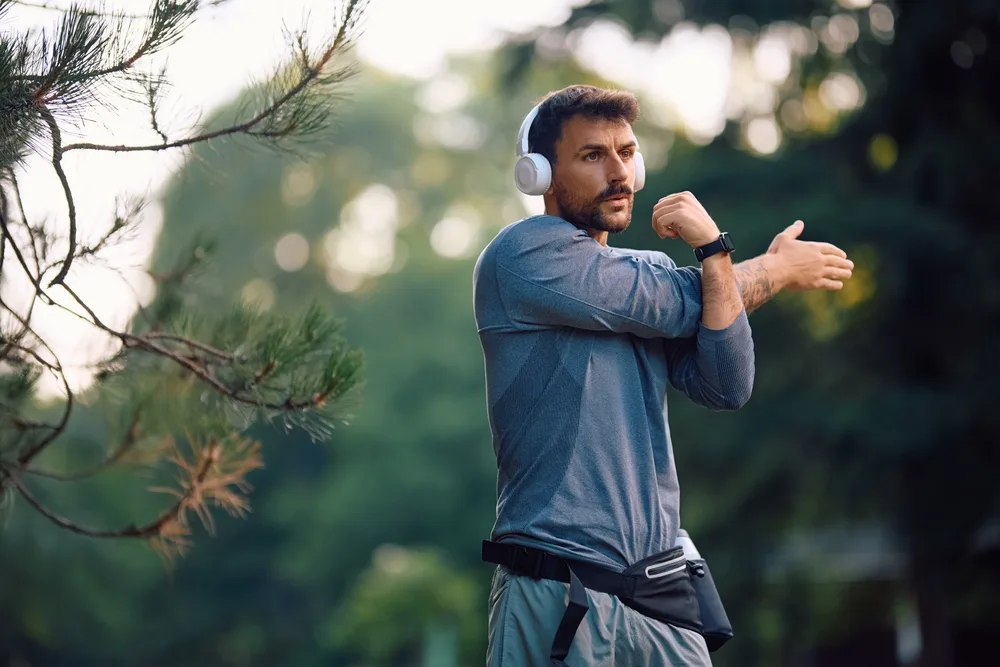Wearable technology has taken health monitoring to a whole new level. Today’s wearables can track a variety of vital health metrics, making it easier than ever to stay informed about your health.
Devices like smartwatches and specialized health monitors can keep tabs on blood pressure, glucose levels, and sleep patterns. This real-time monitoring provides valuable insights into your health, helping you make informed decisions about your lifestyle and medical care.
Blood Pressure Monitoring: Stay in the Know
High blood pressure is often called the “silent killer” because it can go unnoticed for years while quietly damaging your body. Wearables with blood pressure monitoring capabilities, like the Omron HeartGuide, can help you keep track of your blood pressure throughout the day.
Regular monitoring can alert you to any unusual changes, prompting you to seek medical advice before a minor issue becomes a major problem.
Glucose Monitoring: A Lifesaver for Diabetics
For individuals with diabetes, keeping track of blood glucose levels is crucial. Wearables like the Dexcom G6 Continuous Glucose Monitor provide real-time glucose readings, helping users manage their condition more effectively.
These devices can send alerts when glucose levels are too high or too low, allowing for immediate action to prevent complications. By providing continuous data, these monitors help users maintain better control over their blood sugar levels, reducing the risk of long-term health issues.
Sleep Patterns: Understanding Your Rest
Quality sleep is essential for overall health and wellbeing. Wearables like the Oura Ring and Fitbit Sense can track your sleep patterns, including the amount of deep sleep, REM sleep, and light sleep you get each night.
These insights can help you understand your sleep quality and identify factors that might be affecting your rest. By making small changes to your sleep habits, you can improve your overall health and energy levels.
Benefits for Patients with Chronic Conditions
Diabetes: Enhanced Management and Peace of Mind
For people living with diabetes, wearable technology offers significant benefits. Continuous glucose monitors (CGMs) like the Freestyle Libre provide users with constant updates on their blood sugar levels.
This continuous monitoring allows for better management of the condition, reducing the risk of dangerous highs and lows. Additionally, many CGMs can share data with healthcare providers, enabling more precise and timely adjustments to treatment plans.
Heart Disease: Proactive Health Management
Wearables like the Apple Watch and Withings BPM Core offer advanced features for heart health monitoring. These devices can detect irregular heartbeats, monitor blood pressure, and even perform electrocardiograms (ECGs).
For patients with heart disease, this constant monitoring can be lifesaving. Early detection of irregularities allows for prompt medical intervention, potentially preventing serious complications like heart attacks or strokes.
Managing Chronic Conditions: A Holistic Approach
Wearables provide a comprehensive approach to managing chronic conditions. By continuously monitoring various health metrics, these devices offer a detailed picture of your overall health.
This holistic view allows patients and healthcare providers to make more informed decisions about treatment and lifestyle changes. It also empowers patients to take an active role in their healthcare, which can lead to better outcomes and improved quality of life.
The Future of Chronic Disease Management
The future of chronic disease management looks promising with wearable technology. As these devices become more advanced and widely available, they can play an increasingly important role in healthcare.
From early detection of health issues to continuous monitoring and personalized treatment plans, wearables are set to revolutionize how we manage chronic conditions.
Wearable technology is not just about fitness; it’s about improving and managing health on a day-to-day basis. For those with chronic conditions, these devices offer a new level of control and peace of mind, making health management simpler and more effective.
By Admin –




